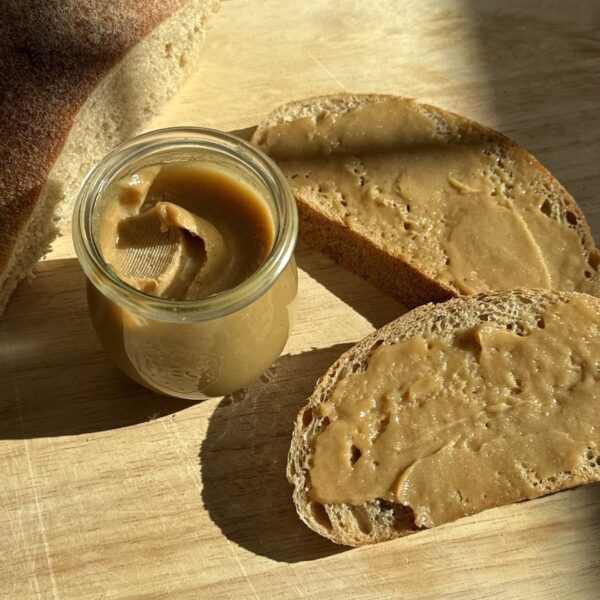Eating for fertility isn’t just about eating to get pregnant right before you get pregnant. Fertility is something we can care for around the clock (er, month) and something we should be considering long before we plan to conceive.
If babies are in your 5 to 10 year plan, consider how you fuel your body, since it’s truly a magical, mystical vessel for this. If babies aren’t in your plan, eating to support your female cycle is still an important practice for optimal function and aging! Fertility and Birth Doula, Laura Fletcher, has all the very crucial deets.
I’m super passionate about eating for fertility because it allows us to be proactive and create a beautiful foundation of wellness for pregnancy and, ultimately, for our babies. We set the stage for our children’s health prior to conception. In addition, eating for fertility sets us up to feel better during pregnancy and postpartum.
If you are struggling with infertility, you can improve sperm and egg quality while simultaneously reducing inflammation, all through your nutritional choices—it’s magic.
In my approach, I like to focus on what we can have in abundance (which, naturally, leaves less room for things we shouldn’t be having in abundance!).
Most important when eating for fertility is eating real, whole, nutrient-dense foods in their most unadulterated state. For egg and sperm quality, I recommend focusing on high-quality protein, healthy fats, complex carbohydrates, and antioxidant-rich vegetables and fruits.
It is also important to consider how often you are eating and if you are slowing down enough to enjoy and digest your food.
Most women I work with are eating too little, too scarcely, and almost always on the go. Slowing down to be present, chew, and enjoy your food is an important part of the digestion process. Eating often enough allows our bodies to feel safe and nourished, which translates to energy for building babies!
Here are some foods I love for fertility:
Oysters, grass-fed beef liver, avocado, sweet potato, coconut milk, bone broth, traditionally fermented organic sourdough (with lots of raw, grass-fed butter—or ghee if you don’t tolerate dairy), wild-caught salmon, broccoli rabe, plantains, sardines, blueberries, bee pollen, Celtic sea salt, duck fat, olive oil, sauerkraut, pastured eggs, beets, and fish roe.
Starting the day with a protein-rich breakfast is one of the best ways to support our hormones and, therefore, our fertility.
Here’s an actionable example of a day eating for fertility:
Upon waking: Warm water with fresh lemon juice or apple cider vinegar and a scoop of high-quality collagen
Breakfast: Ham and Cheese Omelet with Sautéed Spinach and Berries
Midmorning snack: Avocado and Coconut Milk Smoothie
Lunch: Salmon Salad-Stuffed Sweet Potato
Midafternoon snack: Organic Apple with Sprouted Almond Butter
Dinner: Lamb Chops with Roasted Root Vegetables and Brussels Sprouts
Evening snack: Liver Pate with Cucumbers and Sauerkraut
*If you’re vegetarian, do not fret, but don’t discount supplementation. Think protein, iron, zinc, B12, and calcium.
Try a more protein-rich grain for breakfast, like quinoa breakfast porridge.
For lunch, a tofu stir-fry with sea vegetables will add small amounts of B12 (but a supplement is also a great idea to make sure you’re getting enough).
For dinner, a veggie-forward lentil stew for zinc, protein, and iron, with plenty of dark greens like kale for calcium.
The content provided in this article is provided for information purposes only and is not a substitute for professional advice and consultation, including professional medical advice and consultation; it is provided with the understanding that Poosh, LLC (“Poosh”) is not engaged in the provision or rendering of medical advice or services. The opinions and content included in the article are the views of the author only, and Poosh does not endorse or recommend any such content or information, or any product or service mentioned in the article. You understand and agree that Poosh shall not be liable for any claim, loss, or damage arising out of the use of, or reliance upon any content or information in the article.






































